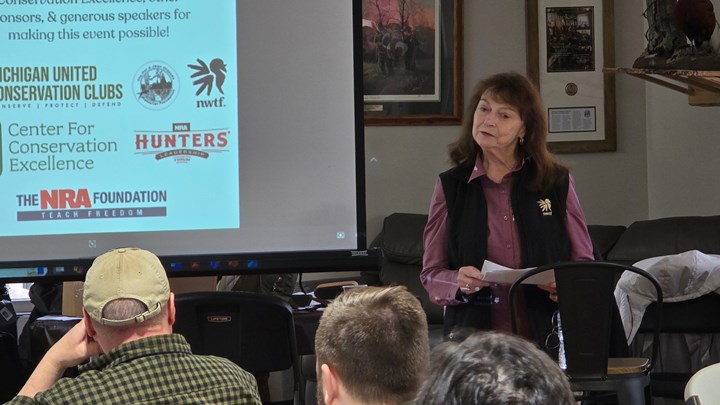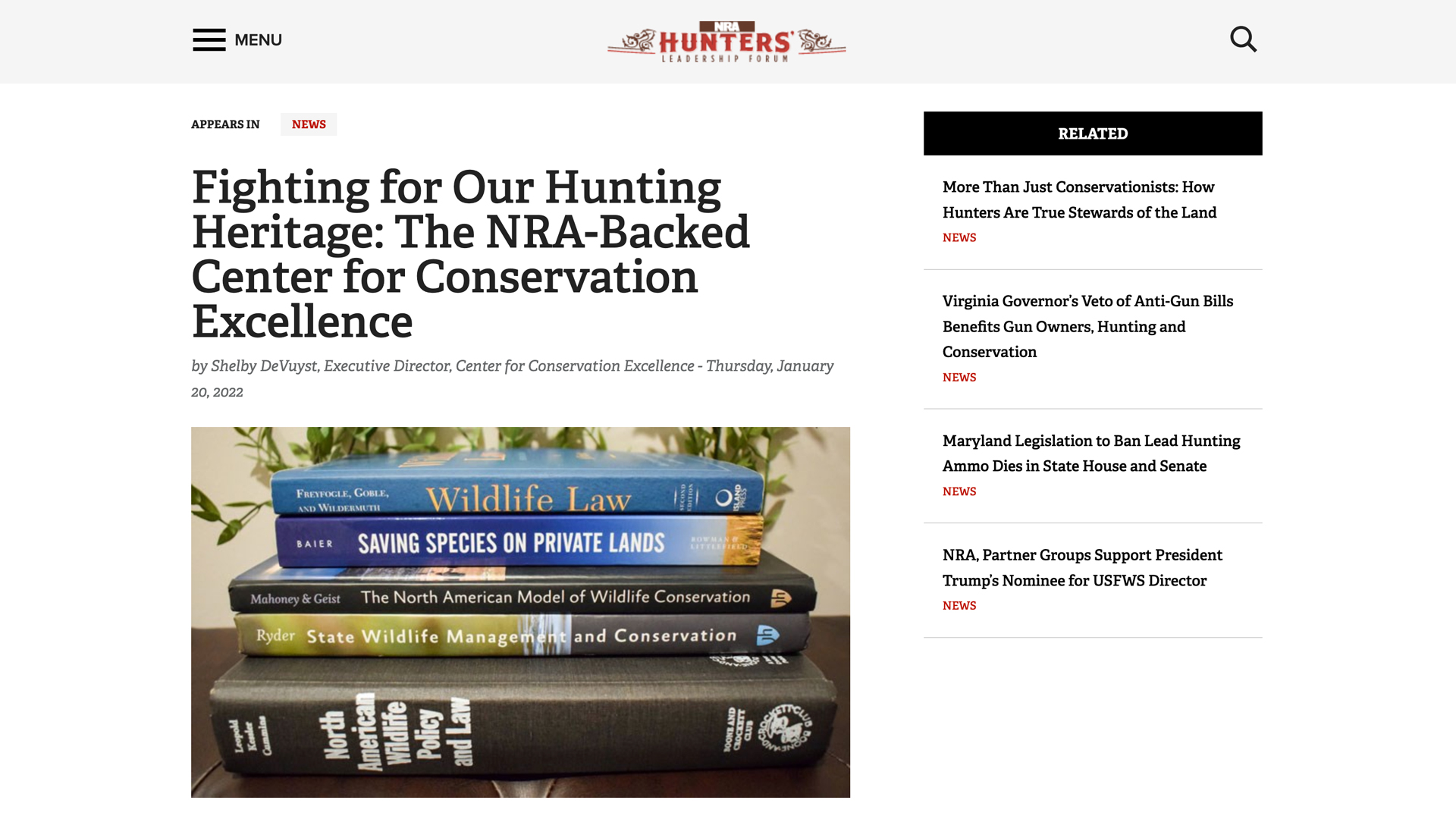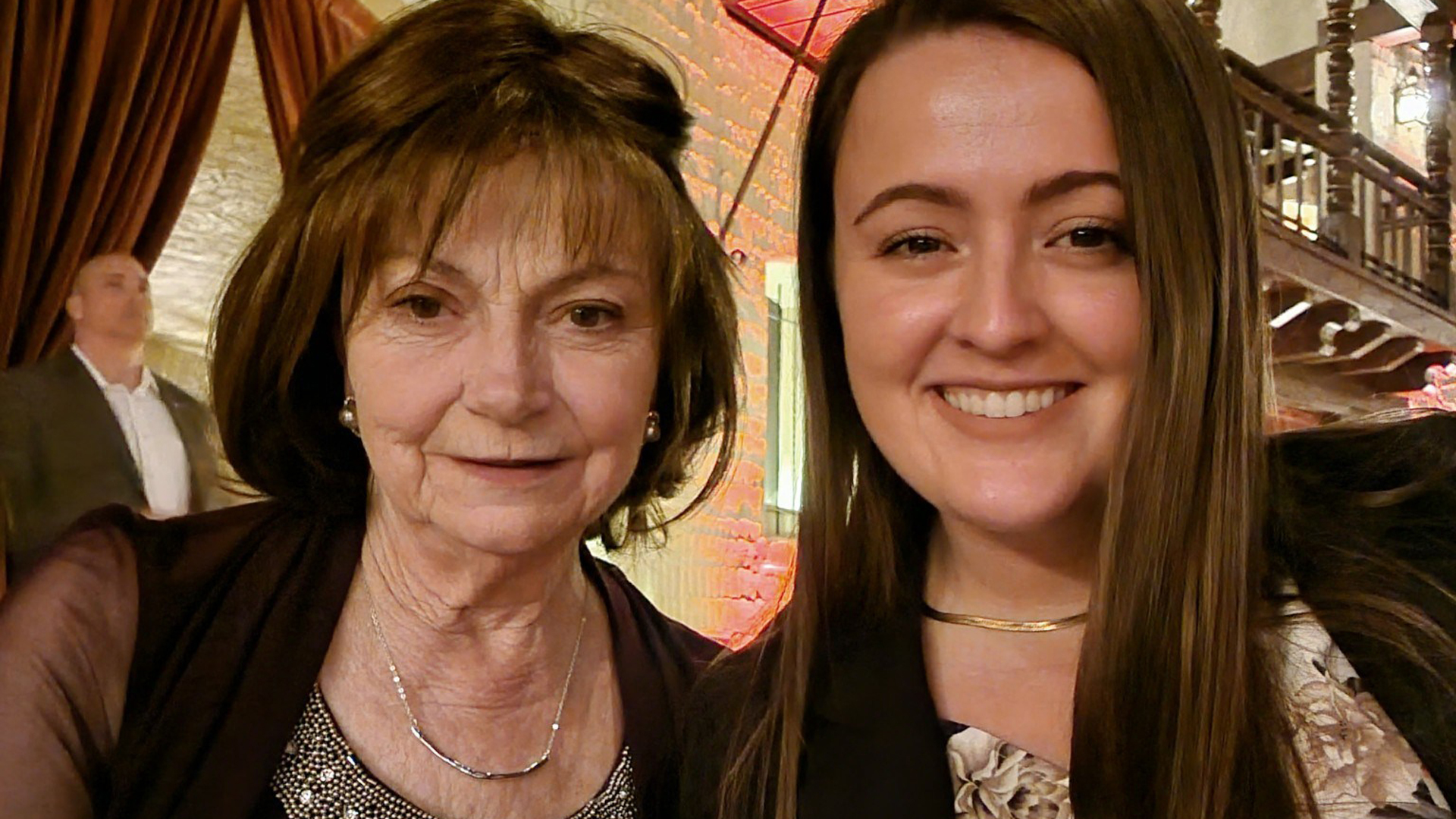
by Shelby LaButte, Assistant Director, Center for Conservation Excellence - Thursday, April 24, 2025

In 1985, a pivotal moment in history began when Carol Frampton, a law school graduate, stepped into her first role in the world of conservation law. As in-house counsel for Michigan United Conservation Clubs (MUCC), little did Frampton know that her first job 40 years ago would lay the foundation for a career that would not only shape the future of conservation but also provide crucial support for nonprofit conservation organizations and state fish and wildlife agencies across the United States.
The Early Years in Michigan: 1985-2002
Fresh out of law school, Frampton joined MUCC, an organization that would become a cornerstone of her career. As its first in-house counsel, she found herself at the heart of Michigan’s conservation efforts. Her work laid the groundwork for a career dedicated to sustainable wildlife management through responsible policies on hunting, fishing and trapping. It was during these formative years that Frampton developed her deep passion for wildlife law, recognizing the crucial intersection of legal expertise and conservation action.
By 1997, her contributions caught the attention of then-Michigan Gov. John Engler, who appointed her to serve as Legislative Director for the Michigan Department of Natural Resources (DNR). In this role, she helped to shape policies that would impact wildlife conservation for years to come. Frampton monitored key legislation, advocated departmental initiatives, testified before legislative committees and supported legislators on natural resource issues. Her time spent at the DNR only deepened her commitment to public service through conservation policy and law.
During her tenure, Frampton navigated complex legal challenges surrounding the state’s natural resources and wildlife protection laws. But her influence reached far beyond Michigan as she began gaining national recognition for her expertise.
An Expanding Impact: 2002-2019
After Gov. Engler’s retirement, Frampton transitioned to an in-house role at MDNR, serving as a critical liaison to the agency director on national issues that exceeded the expertise of the agency’s counsel. In this capacity, she ensured effective coordination and informed decision-making, providing legal counsel on both state and federal laws governing natural resources.
In 2005, Frampton was hired by the Association of Fish and Wildlife Agencies (AFWA) as its first-ever general counsel. In this newly created role, she led legal strategies on major national wildlife issues, advising the 50 state fish and wildlife agencies, U.S. territories, Canadian provinces and Mexican states. She also served as general counsel for AFWA, a multimillion-dollar nonprofit, while advocating for state authority in wildlife management. Through this role, she represented the interests of state and federal agencies in courts and before Congress, cementing her position as a leader in the field.
National Wild Turkey Federation: 2019-Present
In 2019, Frampton joined the National Wild Turkey Federation (NWTF), where she continues her vital work in conservation law. As in-house counsel, she provides legal guidance for NWTF’s day-to-day operations. Her responsibilities span a multitude of areas for NWTF staff, volunteers and affiliated organizations.
Frampton’s role at NWTF involved the development and funding of the Center for Conservation Excellence Foundation (CCE) established in 2022, where she serves as director and oversees a groundbreaking conservation law program. With support from The NRA Foundation, the CCE educates the next generation of conservation professionals on wildlife law, the Second Amendment and the impacts of development on our nation’s wildlife. The CCE offers courses at law schools and universities, provides continuing legal education opportunities for practicing lawyers and judges, and creates internship and externship placements that lead to lasting careers in conservation law.

Teaching The Next Generation
Frampton has long balanced her legal career with a commitment to teaching. From 1989 to 2005, she taught Natural Resource Law, among other courses, at Lansing Community College. Between 1993 and 2010, she taught various courses at Thomas M. Cooley Law School, including Oil and Gas Law, Natural Resources and Endangered Species Law, and The Second Amendment/Gun Control.
Since 2010, Frampton has been an adjunct professor at Michigan State University’s (MSU) College of Law, where she teaches Wildlife Law and Legal Issues in Energy Development and Wildlife Impacts. Her dedication to both legal practice and education is exemplified by her weekly commutes from Washington, D.C., where she worked for AFWA, to Michigan for her teaching commitments.
At MSU, she has also served as an expert reader for the school’s student-run journals, helping to elevate critical conservation topics including chronic wasting disease, wildlife trafficking and captive cervid farming into scholarly publications. Her contributions have helped to foster deeper academic discussions on issues that are now regularly addressed in legal and conservation circles.
Beyond the classroom, Frampton has worked to create career opportunities for law students interested in conservation. Through the CCE’s Conservation Law Internship Program, she has helped to place conservation-interested students in positions with conservation nonprofit organizations and state agencies, ensuring they gain invaluable hands-on experience and long-term career prospects in the field.
A Personal Journey
Beyond her professional achievements, Frampton has volunteered her time to several key organizations, including the Council to Advance Hunting and the Shooting Sports, the International Hunter Education Association and the National Rifle Association (NRA). She has served as an active member of the NRA Board since 1998, holding leadership roles as chair of several committees, including the Bylaws, Women’s Policies, Legal, Hunting & Wildlife Conservation, and Hearings committees.
Frampton’s commitment to wildlife law and conservation was not the only significant element of her life. Over the years, she also found personal fulfillment through hunting, a passion she embraced more than two decades ago. Through her marriage to John Frampton, former director of the South Carolina Department of Natural Resources, she was introduced to hunting across the world, from the United States to South Africa, Australia and Namibia.

However, her demanding career came with sacrifices. Her only regret was the time spent away from her three daughters. While her devotion to wildlife law and the broader conservation mission often took her away from home, she drew strength from the knowledge that her work would leave a lasting impact—not just within the wildlife conservation community, but in the lives of her children and grandchildren.
A Lasting Impact
Today Frampton’s pioneering work in internship programs, educational contributions and legal advocacy stands as a testament to the lasting impact of her career. The importance of educating on wildlife law has never been more apparent, and her efforts have helped to shape new opportunities in conservation that will endure for generations, thanks to the creation of the CCE with the help of AFWA, state wildlife agencies, now-retired NWTF CEO Becky Humphries and financial support from organizations such as the NRA Hunters’ Leadership Forum.
Frampton’s legacy is clear: It’s not just about legal victories, policy changes or the laws themselves. It’s about the lives she touched, the minds she shaped and the future she has helped to secure for wildlife conservation.
Carol Frampton has helped shape the future of conservation itself, and for that we all deserve to know who she is and celebrate her accomplishments.

About the Author
Shelby LaButte (above, right) is the assistant director for the Center for Conservation Excellence Foundation (CCE), working alongside Carol Frampton to educate students on the history of conservation, the challenges facing modern conservation efforts, and the vital role of law, policy, state agency authority and non-profit support. The CCE’s focus on professional development supports the protection of the nation’s fish, wildlife and habitats while upholding the rights of Americans to hunt, fish and trap. The achievements of those trained through CCE programs serve as inspiration for continued progress in conservation, grounded in the principles of sound scientific management and stewardship.
E-mail your comments/questions about this site to:
[email protected]
